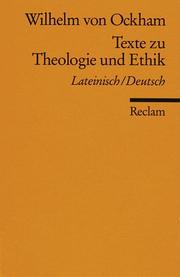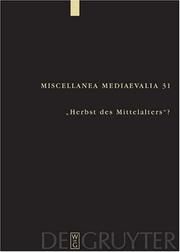| Listing 1 - 10 of 11 | << page >> |
Sort by
|
Book
ISBN: 0387159738 3540159738 3642465609 9780387159737 Year: 1985 Volume: 254 Publisher: Berlin: Springer,
Abstract | Keywords | Export | Availability | Bookmark
 Loading...
Loading...Choose an application
- Reference Manager
- EndNote
- RefWorks (Direct export to RefWorks)
Speculation --- Arbitrage --- Hedging (Finance) --- Mathematical models --- Mathematical models. --- 336.76 --- 336.76 Beurswezen. Geldmarkt. Valutamarkt. Binnenlandse geldmarkt. Valutamarkt --- Beurswezen. Geldmarkt. Valutamarkt. Binnenlandse geldmarkt. Valutamarkt --- Private finance --- Actuarial mathematics --- Prices --- Speculation - Mathematical models --- Arbitrage - Mathematical models --- Hedging (Finance) - Mathematical models
Book
ISBN: 9783402119280 3402119285 3402119382 3402119528 Year: 2018 Volume: 7 Publisher: Aschendorff Verlag
Abstract | Keywords | Export | Availability | Bookmark
 Loading...
Loading...Choose an application
- Reference Manager
- EndNote
- RefWorks (Direct export to RefWorks)
Long description: Die Geschichte der Moraltheologie beschreibt das Spätmittelalter oft als dunkle Periode zwischen dem Höhepunkt der mittelalterlichen Ethik bei Thomas von Aquin und den Neuaufbrüchen der Spanischen Spätscholastik. Es erscheint als Zeit eines unfruchtbaren Streits, den die Anhänger des „alten Weges“ (via antiqua) in der Nachfolge des Thomas von Aquin mit Vertretern des „neuen Weges“ (via moderna) ausfochten, die diese Richtung ablehnten. Diese Auseinandersetzung hatte großen Einfluss auf die philosophische Lehre an den Universitäten im deutschsprachigen Raum. Kam ihr aber auch eine theologische Dimension zu? Welche Konsequenzen hatte die Ausbildung der beiden Lager für das Selbstverständnis der Moraltheologie? Die Studie zeigt, dass theologische Streitigkeiten über das Verhältnis von Theologie und Philosophie sogar entscheidend zur Entstehung des Wegestreits beitrugen. Die via moderna hob die Eigenständigkeit der Theologie gegenüber der Philosophie hervor. Ihre Sorge vor der Fehldeutung theologischer Begriffe führte zu einer Kontrollhaltung gegenüber philosophischen Argumentationen in der Theologie. Dies wurde bis in die Debatten im Prozess gegen Jan Hus beim Konstanzer Konzil hinein spürbar. Zu solchen Extremen kam es in der Moraltheologie nicht. Dazu trug der klug ausbalancierte philosophische Kommentar zur Ethik von Johannes Buridan bei, auf den auch die Theologen der via moderna rekurrierten. So kam es, dass sich offenbarungspositivistische Positionen nicht etablierten. Vielmehr rückte die spirituelle Dimension des Handelns in den Mittelpunkt.
Nominalism --- Philosophical theology --- Christian ethics --- Theology --- Middle Ages. --- Buridan, Jean, --- Ailly, Pierre d', --- Marsilius, --- Ethik --- Konzil von Konstanz --- Universität Paris (Geschichte) --- Theology - Middle Ages. --- Buridan, Jean, - 1300-1358. --- Ailly, Pierre d', - 1350-1420? --- Marsilius, - of Inghen, - -1396 --- Via moderna --- Philosophy --- Capreolus, Jean, --- Gerson, Jean, --- To 1500 --- Ailly, Peter of, --- Ailliaco, Petrus de, --- D'Ailly, Pierre, --- Ailly, Peter von, --- Aliaco, Petrus de, --- Alliacus, Petrus, --- Petrus, --- Pierre, --- Eliaco, Petrus de, --- Buridanus, Joannes, --- Buridanus, Ioannes, --- Burydan, Jan, --- Buridano, Giovanni, --- Buridanus, Iohannes, --- Buridanus, Johannes, --- Buridan, John, --- Buridan, Johannes, --- Cabrol, Jean, --- Capreolus, John, --- Charlier de Gerson, Jean, --- Charlier, Jean, --- Gerson, Giovanni, --- Gerson, Jean Charlier de, --- Gerson, Joannes, --- Gerson, Johannes, --- Gerson, John, --- Gersone, Giovanni, --- Gersoniolis, Ioannes de, --- Gersonius, Ioan. --- Gersonius, Joannes Charlerius, --- Gersonnus, Iohannes de, --- Gersonnus, Johannes de, --- Jarson, Joan, --- Johannes Marsilius, --- Marcelius, --- Marsile, --- Marsilio, --- Marsilius, Johannes, --- Marsilius van Inghen, --- מרשילייו,
Book
ISBN: 3772025862 Year: 2000 Publisher: Tübingen Francke
Abstract | Keywords | Export | Availability | Bookmark
 Loading...
Loading...Choose an application
- Reference Manager
- EndNote
- RefWorks (Direct export to RefWorks)
Dissertation
Abstract | Keywords | Export | Availability | Bookmark
 Loading...
Loading...Choose an application
- Reference Manager
- EndNote
- RefWorks (Direct export to RefWorks)
Book
ISBN: 9783402119495 3402119498 Year: 2020 Publisher: Münster: Aschendorff,
Abstract | Keywords | Export | Availability | Bookmark
 Loading...
Loading...Choose an application
- Reference Manager
- EndNote
- RefWorks (Direct export to RefWorks)

ISBN: 315018083X Year: 2000 Publisher: Stuttgart : Reclam,
Abstract | Keywords | Export | Availability | Bookmark
 Loading...
Loading...Choose an application
- Reference Manager
- EndNote
- RefWorks (Direct export to RefWorks)
Book

Year: 1967 Publisher: Andechs Kloster Andechs
Abstract | Keywords | Export | Availability | Bookmark
 Loading...
Loading...Choose an application
- Reference Manager
- EndNote
- RefWorks (Direct export to RefWorks)
Book

Year: 1956 Publisher: Berlin Mann
Abstract | Keywords | Export | Availability | Bookmark
 Loading...
Loading...Choose an application
- Reference Manager
- EndNote
- RefWorks (Direct export to RefWorks)
Art --- History --- Festschriften --- Kauffmann, Hans


ISBN: 9783110204544 9783110182613 Year: 2008 Publisher: Berlin ;; Boston De Gruyter
Abstract | Keywords | Export | Availability | Bookmark
 Loading...
Loading...Choose an application
- Reference Manager
- EndNote
- RefWorks (Direct export to RefWorks)
Book

ISBN: 9783110801453 Year: 2012 Publisher: Berlin Boston
Abstract | Keywords | Export | Availability | Bookmark
 Loading...
Loading...Choose an application
- Reference Manager
- EndNote
- RefWorks (Direct export to RefWorks)
| Listing 1 - 10 of 11 | << page >> |
Sort by
|

 Search
Search Feedback
Feedback About UniCat
About UniCat  Help
Help News
News